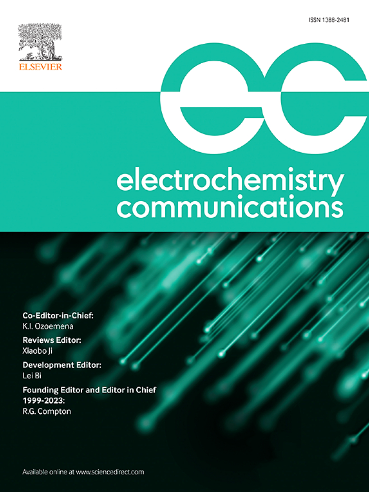A simple and effective catalyst recovery protocol for H2-PEMFCs
IF 4.2
3区 工程技术
Q2 ELECTROCHEMISTRY
引用次数: 0
Abstract
Catalyst degradation in the cathode electrode for H2-PEM (hydrogen proton-exchange membrane) fuel cells is a crucial topic to tackle to achieve high durability and efficiency. Despite ongoing research, a concurrently fast, easy-to-adapt, and effective recovery protocol is still missing. In this study, we report a fast and easy-to-adapt recovery protocol that significantly mitigates the negative effects associated with catalyst degradation for the cathode electrode in H2-PEMFCs. Following accelerated stress tests (AST) of 30,000-cycles, membrane-electrode assemblies (MEAs) using our new recovery protocol exhibit remarkable higher end-of-life performance compared to similar MEAs subjected to the same AST but utilizing the DOE-defined recovery protocol. The end-of-life differences for the new recovery protocol are over 100 % increase in power density at 0.6 V and around 26 % increase at peak power density. By analyzing performance, the Tafel slope, the electrochemical surface area (ECSA), and impedance data, the improvements are traced back to better catalyst recovery and thus improved performance at end-of-life.
简单有效的 H2-PEMFC 催化剂回收方案
H2-PEM(氢质子交换膜)燃料电池阴极电极催化剂降解是实现高耐用性和高能效的关键问题。尽管正在进行研究,但仍然缺少一种快速,易于适应且有效的恢复方案。在这项研究中,我们报告了一种快速且易于适应的恢复方案,该方案显著减轻了h2 - pemfc中阴极电极催化剂降解相关的负面影响。经过3万次加速压力测试(AST)后,使用我们的新恢复方案的膜电极组件(MEAs)与使用相同AST但使用doe定义的恢复方案的类似MEAs相比,具有显着更高的寿命终止性能。新恢复方案的寿命终止差异是在0.6 V时功率密度增加超过100%,峰值功率密度增加约26%。通过分析性能、Tafel斜率、电化学表面积(ECSA)和阻抗数据,这些改进可以追溯到更好的催化剂回收率,从而提高了寿命结束时的性能。
本文章由计算机程序翻译,如有差异,请以英文原文为准。
求助全文
约1分钟内获得全文
求助全文
来源期刊

Electrochemistry Communications
工程技术-电化学
CiteScore
8.50
自引率
3.70%
发文量
160
审稿时长
1.2 months
期刊介绍:
Electrochemistry Communications is an open access journal providing fast dissemination of short communications, full communications and mini reviews covering the whole field of electrochemistry which merit urgent publication. Short communications are limited to a maximum of 20,000 characters (including spaces) while full communications and mini reviews are limited to 25,000 characters (including spaces). Supplementary information is permitted for full communications and mini reviews but not for short communications. We aim to be the fastest journal in electrochemistry for these types of papers.
 求助内容:
求助内容: 应助结果提醒方式:
应助结果提醒方式:


